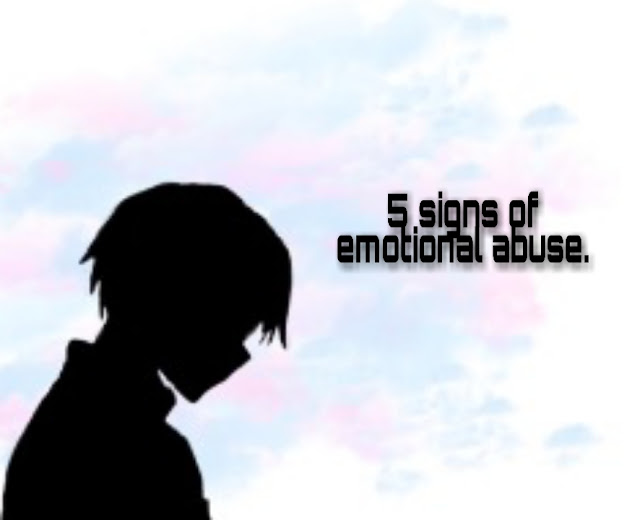Are you a toxic parent?
💓Children should always expect from their parents love and care but, what if the parents are toxic? How would you feel? Emotional Abuses or hurtful words can leave marks and memories from the short time to lifetime. Hurt full remarks can come from loved ones such as parents, and the psychological and emotional damage can be detrimental to a lot of people, especially their children. The way parent raise their children and behave around them sets up the basic ground which builds their personality and self-esteem. So, how do you know for parent or caretaker is toxic? Here are eight things toxic parents say that can affect the child's life.💓
1. Offensive
words towards their children."You're ugly"; "too fat";"too
short", or "too skinny" or "you've ugly hair". Degrading
a child based on their appearance will likely only increase their physical
insecurity and worry about their body image. This could lead to serious
emotional issues, such as eating disorders. Parents are supposed to teach their
children how to love themselves, no matter how they look on the outside.
2. Provocative questions towards actions. Like, "Why do you act so weird?", "Why do you walk that way?","Chew that way, move or talk that way?", Children tend to believe anything their parents say. So, sarcastic questions or remarks like these may make the child feel like there's something wrong with them. This makes it very hard for the child to be themselves around people, even during their adulthood. And they may then be trapped by the discomfort, and fear, that others may laugh at them or notice the flaws that their toxic parents made up for them.
3. Selfish wishes."I wish you were never born", "I wish I had an abortion", "I regret having you", "I wish you were a different child". Parents should never say something like this to a child. It'll make them feel like they weren't supposed to exist in this world in the first place, and that they don't deserve to be alive. These remarks are so harmful to a child and to a human in general. They diminish their whole sense of identity, which can lead to which can lead to a self-harm and early depression. Instead, parents should make them feel loved and valued.
4.
Making the child feel like a burden. "You cost me too much money", "It's
so hard to take care of you", "Having you exhausts me". If a
parent says this to their child, the child will feel like a burden. It'll cost
them to unconsciously hide their needs, feeling some problems Just to avoid the
rough of the parent. Considering that, Nemours, an un profit children's health care
system, reported that lack of love and affection, or materialistic things are
some of the causes for some children to lean on stealing and being abusive
5. Unhealthy comparisons. "Why
aren't you like your sibling, cousin or the other kids""The other
kids are better than you". This whole reduces a child's self-esteem substantially
and makes them think that they'll never be good enough, no matter how hard they
try. Also, comparing siblings with one another, only promotes an unhealthy
relationship between them. This will cause them to feel jealousy and resentment
towards each other. Siblings should be equally given the right to build their
own independent identities.
6. Verbally abusive words or statements."You're stupid, useless", "You're looser" or "You'll never make it". Absolute remarks like this will damage the child's self-esteem. It's important that parents encourage their children into believing in themselves.
7. Threatening abandonment. "I'll leave you", "I'll put you aside", "You'll wake up and never find me", "I'll just disappear". This will cause the child to have abandonment issues, feeling that people they love will leave them because of who they are. When the child grows up, this belief will be unconsciously ingrained in their mind. They'll be unable to trust future relationships for fear of them leaving.
8. Empty promises. "If you do this, I’ll buy you that" or "I'll take you there next time", but then they don't do it. When the parent makes promises that they don't keep, it breaks the child's trust. It makes the child feel betrayed. Making fake promises is an excellent way to teach a child how not to trust others in life. To conclude, even though words aren't physically harmful, they can be extremely harmful to the psychic and emotional well-being. Childhood is an essential chapter in every human's life. Our childhood builds our personalities, behaviors and beliefs. Have you experienced any of these forms of abuse? How do you feel about them? Do you know someone who has and get benefit after reading this Blog? Please consider sharing this Blog to reach world wide attention, so parents or future parents can also be more mindful about how they talk to their children. If you care about our mission, please don't forget to share the Dinfotainment Blogs for more of our interesting content. And, as always, thanks for reading.(https://dinfotainment.blogspot.com/)









Comments
Post a Comment